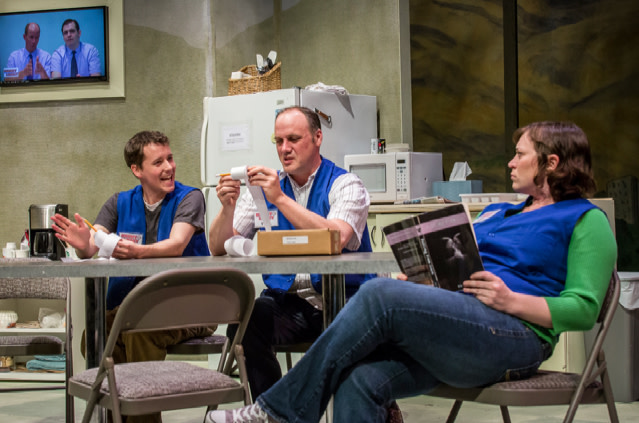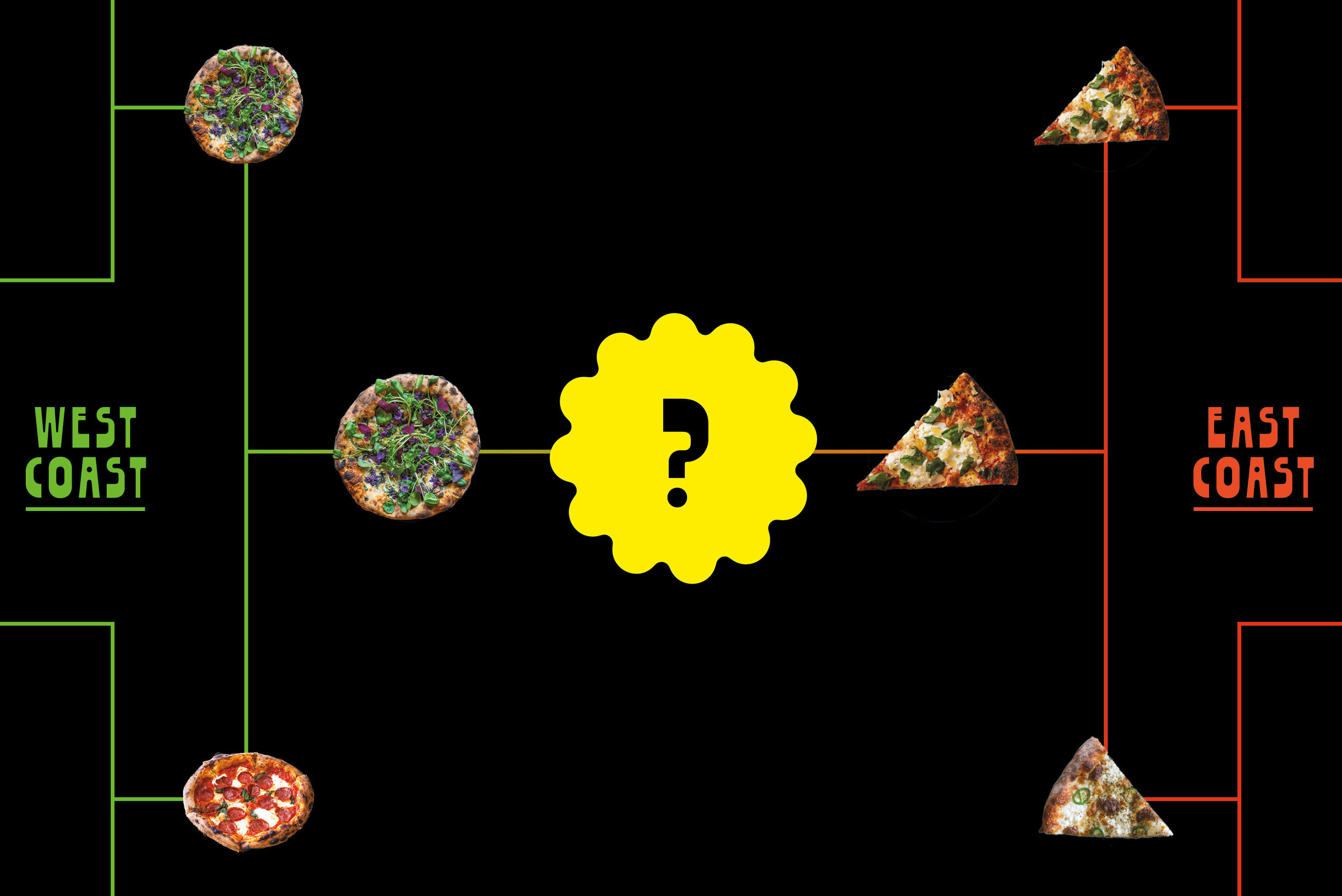Review: Third Rail's 'A Bright New Boise'

Alex (Andy Lee-Hillstrom), Will (Tim True), and Anna (Kerry Ryan) try to figure out why the day's receipts don't add up.
Image: Owen Carey
During the finale of A Bright New Boise, protagonist Will (Tim True), a remorseful religious fanatic finds a cryptic note written to him by his troubled coworker Alex (Andy Lee-Hillstrom). It reads simply, “Hell is all around us.” It’s a small, provocative brush stroke by playwright Samuel D. Hunter in a play that’s chockfull of them. As staged by director John Vreeke and Third Rail Repertory, A Bright New Boise, now entering its final week, is a marvelous and precariously balanced sculpture of working-class humor, deep thought, and spiritually tragic events that makes a number of incisive observations, applied with subtlety, and sans half-baked conclusions. Like any worthwhile work of art, those are left for us to sift and sort through.
Played with heartbreaking hangdog soul by True, as reliable an actor as we have in our midst, Will is a cipher, a Flying Dutchman, a man without a country. As the play opens, he’s wandering in the darkness begging for the world to end. Eventually, he returns to the mundane world to seek work at Hobby Lobby, a Boise big-box store where drudgery and minimum wage are always the special of the day. He’s shepherded through the employment process by Pauline (a crackerjack Jacklyn Maddux), the determined store manager with an overriding imperative to create order out of chaos—not to mention, swear like a Portuguese fisherman. “I’ll put you on full-time as soon as I can,” she tells Will. “Until then you work thirty-eight hours a week,” Ah, the joys of nearly fulltime employment.
Pauline, the anti-labor champion of commerce and duty at all costs, is a character as fully indoctrinated into a system as Will used to be. At times her dedication to corporate management practices and routine seem like positive attributes, providing her with a sense of purpose that’s lacking elsewhere in the cast. And other times she’s simply petty, officious, and flustered, flying into a fit of profanity whenever conflict rears its head.
Will soon meets his fellow employees: young anxiety ridden Alex, a nascent writer-musician; Leroy A Bright New Boise
Winningstad Theatre
Thru June 23
(Chris Murray), a hostile, confrontational T-shirt artist and Alex’s foster brother; and finally, Anna (Kerry Ryan), a goofy incompetent with boundary issues, who nonetheless is the most grounded and likable character in the play. The scenes in the company break room with Anna clumsily trying to connect with Will are so funny and tender that we quickly realize Hunter’s story would be unbearably ponderous without them.
This extremely dysfunctional and volatile family unit—played by a fully commited and spot-on cast—never gets the chance to coalesce, as Will’s dark past is an albatross (alba-cross?) that he can’t put down even as he seeks redemption for his transgressions. Unsettling, sketchy evidence of Will’s participation in a notorious Christian cult from “up north” is perceived as a threat by everyone around him, even good-natured Anna and single-minded Pauline. The fear that Will might be trying to influence the equally rudderless Alex toward a Christian path angers Leroy his ostensible guardian, who wants Alex to pursue his nebulous artistic inclinations. And poor Alex simply proves too fragile to fight over.
What playwright Hunter, a native of small-town Idaho, does best is avoid cliché and the easy stereotype. As a gay writer now living in New York, it’s almost to be expected that he would cheerfully eviscerate and ridicule Will, a guilt-ridden sad sack who clings pitifully to the wreckage of his beliefs like a man lost at sea (which, in fact, he is). Instead, he creates a complicated and conflicted character that struggles manfully to find some way to live.
Will is a person with definite redeeming qualities, none greater than his desire to at least tentatively explore another direction in his life as he tries to befriend Alex, and to a lesser extent, the lonely, but nurturing, Anna. Hunter cannily leaves us to ponder if Will can summon the courage to grab the life ring being thrown to him, and learn to peacefully coexist—and possibly love—his flawed coworkers (and the world itself). Or consequently, will he go down with his ruined ship, finally abandoning hope and deciding that his tragic mistake is something that he should suffer for eternity? “Without God, I’m just a bad father working at the Hobby Lobby who lives in his car,” he sadly observes.




